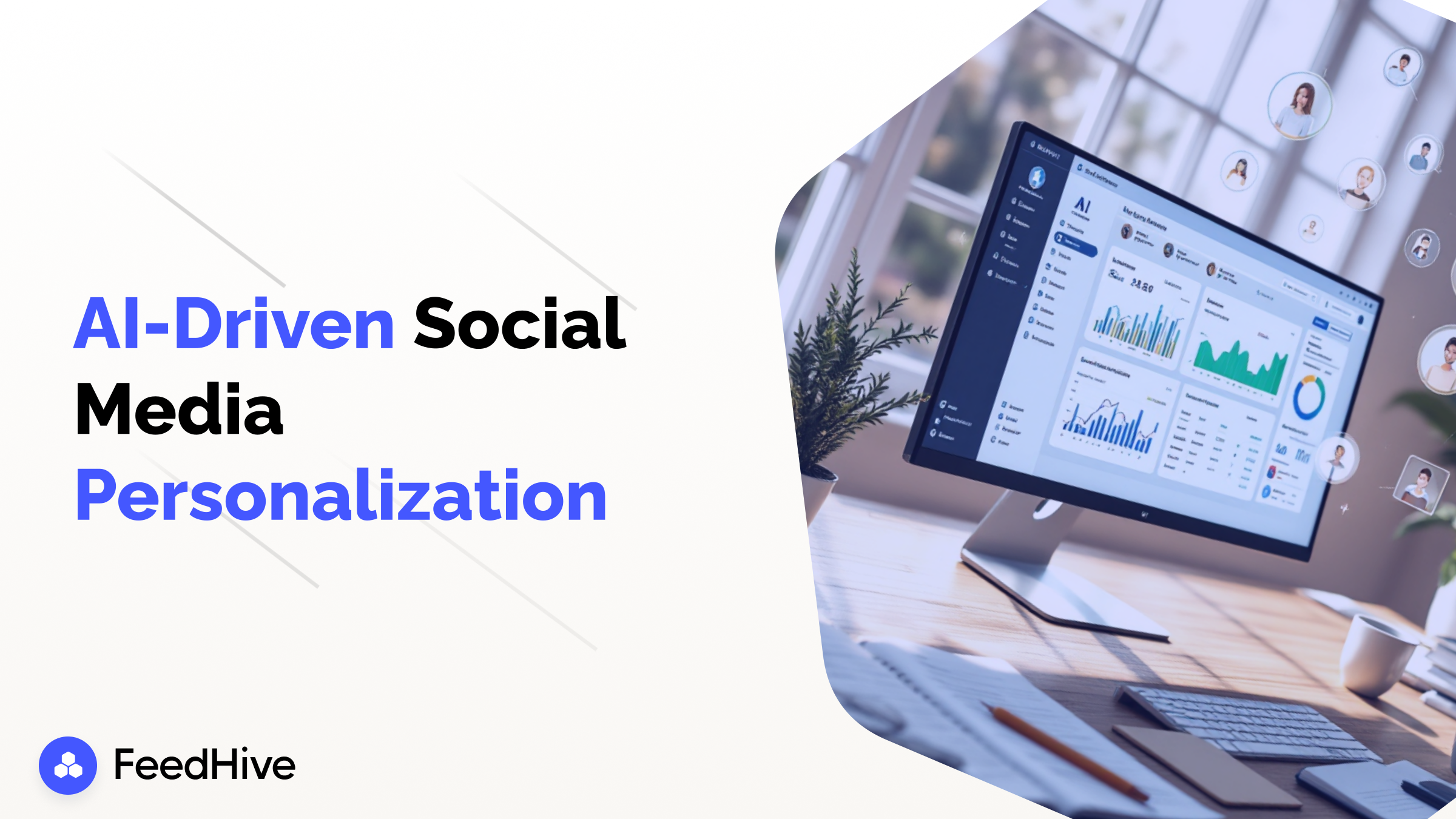
In today's digital landscape, brands face the challenge of capturing attention in a crowded social media space. AI-powered personalization offers a dynamic way to craft content that resonates uniquely with diverse audience segments, enhancing engagement and driving conversions. This post explores the transformative role of AI in delivering tailored social media experiences and the strategies that can help brands forge deeper connections with their audiences.
AI-powered personalization leverages advanced machine learning algorithms to analyze user behavior, preferences, and interactions. These insights allow brands to predict what content users are likely to enjoy and engage with, marking a shift from a one-size-fits-all marketing approach to a highly customized experience. Research published in the International Journal of Accounting and Economics Studies highlights that AI personalization significantly impacts consumer purchase decisions, enhancing customer satisfaction and brand loyalty (sciencepubco.com). This capability not only boosts user engagement but also transforms the overall consumer journey by delivering the right message at the right time.
To tailor content effectively, brands need to understand the varied interests, behaviors, and cultural backgrounds of their target audiences. Audience segmentation involves categorizing users based on factors such as demographics, social behavior, interest groups, and purchasing patterns. With AI, large volumes of user data are analyzed swiftly, providing granular insights into these segments. This ensures that the content delivered aligns with the unique needs of each group.
By incorporating sentiment analysis and behavioral trends, companies can refine their messaging to better connect authentically with different segments. For instance, platforms like Brand24 help monitor and assess customer opinions and sentiments across various channels, making it easier to understand public perception and fine-tune engagement strategies (en.wikipedia.org). The ability to discern these nuances is key to tailoring social media campaigns that speak directly to individual users.
A range of AI tools is available to help brands deliver personalized social media experiences. Each of these tools offers distinct capabilities that can enhance different aspects of a marketing strategy:
Meta Platforms: Meta is advancing toward fully automating its advertising process by 2026. Their AI-driven approach generates complete ad campaigns, from images and videos to text—by simply providing a product image and budget. This tool uses user data such as geolocation for real-time, personalized targeting on platforms like Instagram and Facebook (Reuters).
Reddit: With tools such as "Reddit Insights" and "Conversation Summary Add-ons," Reddit’s AI features enable brands to tap into real-time user discussions, analyze emerging trends, and even incorporate positive user comments into their ads. These capabilities make it easier to enhance engagement by directly appealing to the pulse of social conversations (Reuters).
Adobe's Experience Platform: This suite of AI tools supports comprehensive, context-aware, and multi-step workflows aimed at optimizing customer experiences. Adobe’s approach integrates ROI-focused functionalities, ensuring that AI-driven personalization aligns with specific business goals (TechRadar).
Predis.ai: Predis.ai simplifies the creative process by generating ad creatives, social media posts, and product videos. With features such as content scheduling and auto-posting, the tool is designed to streamline social media management, potentially integrating with broader management platforms like FeedHive for a seamless experience.
SoMin.ai: By combining deep multi-view personality profiling with style generative adversarial networks, SoMin.ai generates content that appeals to various personality types, ensuring authenticity and relevance across diverse user groups (arxiv.org).
These pioneering tools illustrate how AI can be harnessed to create targeted, real-time content that resonates on a personal level, driving stronger engagement and improved conversion rates.
Once brands have segmented their audience and chosen appropriate AI tools, the next step is to craft a content strategy that is both data-driven and creative. A successful strategy starts with a thorough content audit that identifies what resonates with various segments. Brands should:
This blend of creativity and AI-driven insights ensures that each piece of content is highly targeted and relevant. Furthermore, for brands looking to streamline their social media scheduling, tools like FeedHive can assist by integrating AI insights into the content planning process.
Several brands have successfully implemented AI-driven personalization campaigns, showcasing substantial improvements in engagement and conversion metrics. For example:
These case studies reflect a broader trend in social media marketing, where personalization not only drives higher engagement but also fosters a deeper emotional connection between the brand and its consumers.
While the benefits of AI-driven personalization are significant, brands must navigate a range of challenges and ethical issues:
Addressing these challenges requires a balanced approach that respects user privacy while leveraging data for meaningful personalization.
Looking ahead, AI-driven personalization is set to become even more sophisticated. Some emerging trends include:
These trends suggest that the future of social media marketing lies in the ability to deliver hyper-personalized experiences without compromising ethical standards.
AI-powered personalization represents a paradigm shift in social media marketing, offering brands the opportunity to engage audiences in ways that were previously unimaginable. By leveraging advanced AI tools and techniques, companies can craft customized content strategies that enhance engagement, drive conversions, and build lasting customer relationships. As the technology continues to evolve, the brands that embrace these innovations will not only remain competitive but will also set new standards in customer experience.
Embrace AI-driven strategies today to unlock deeper connections with your diverse audience and lead the way in innovative social media marketing.